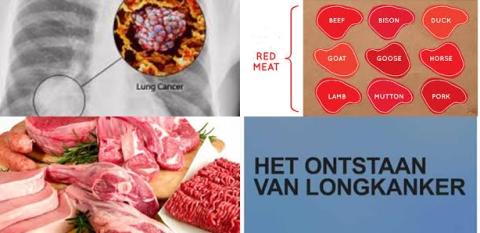
Objectives:
Increasing evidence suggests that high consumption of meat is linked to lung cancer but the previous meta-analyses did not properly address the role of tobacco smoking as a potential confounder. Therefore, this review article (meta-analysis) has been conducted.
Does high consumption of meat increase lung cancer risk among never and non-smokers?
Study design:
This review article included 14 independent observational studies and a total of 5,368 subjects with lung cancer.
There was no indication of publication bias.
Results and conclusions:
The investigators found in 11 studies, a statistically significant 24% increased risk of lung cancer for high consumption of red meat [Summary Relative Risk = 1.24, 95% CI = 1.01-1.51, I2 = 31%].
The investigators found no significant associations between high consumption of other types of meat, fish or for heterocyclic amines and lung cancer risk.
The investigators found no significant risk estimates for the increase of one serving per week of any type of meat or fish.
The investigators concluded a high intake of red meat increases the risk of lung cancer among never and non-smokers.
Original title:
Carcinogenicity of High Consumption of Meat and Lung Cancer Risk Among Non-Smokers: A Comprehensive Meta-Analysis by Gnagnarella P, Caini S, […], Gandini S.
Link:
https://www.ncbi.nlm.nih.gov/pubmed/29016198
Additional information of El Mondo:
Find more information/studies on meat consumption, randomized controlled trials/cohort studies/subgroup analysis and cancer right here.
According to international recommendations, adults should aim to have a maximum of 70g red meat per day or 500g per week (cooked weight).